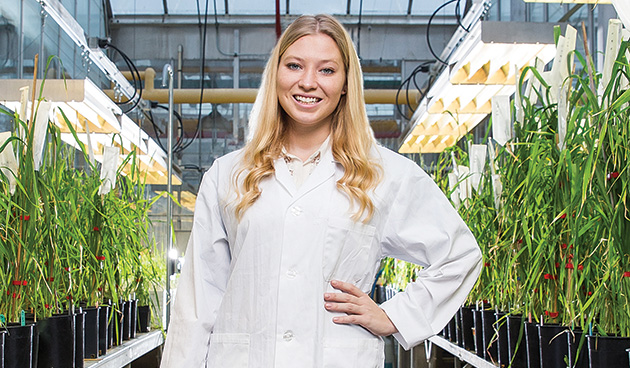[vc_row][vc_column][/vc_column][/vc_row][vc_row][vc_column width=”1/2″][vc_column_text]

[/vc_column_text][/vc_column][vc_column width=”1/2″][vc_column_text]
Kelcie Miller-Anderson
Founder at MycoRemedy
Canadas Top 20 Under 20,
Next 36 2016 Cohort
1) What would having constitutional environmental rights (e.g. the right to clean air, clean water, safe food, to access nature, etc.) mean to you, and/or your organization?
“Access to a healthy environment is something I think that everyone deserves, having constitutional environmental rights are a fantastic first step in making this access a reality for all. I think we as a province, our communities, government, and industry, are already moving in the right direction to securing a healthy and sustainable future for Alberta’s ecosystems,
[/vc_column_text][/vc_column][/vc_row][vc_row][vc_column][vc_column_text][and] having these constitutional rights in place are only going to further motivate and drive the creation of new clean technologies, and [improve] our current industries to lessen and ultimately reverse their impacts.”
2) What do you think people in Edmonton can and/or should do to further the cause of environmental rights?
“I think an important first step is to show the value [that] environmental rights have to our community and [the] commitment we have to them.[….] I believe we can show this by actively engaging in sustainable practices and making an effort to focus on being good environmental stewards as a community. If these rights are ever going to be ensured, it’s not going to just be the responsibility of the government, it’s also important for our communities to be actively engaged[.] [I]f we can show we are taking the first step to help secure environmental rights we will be able to lead by example [and] highlight their importance to the government.”
3) What are you (or your organization/business/group) doing to further the cause of environmental rights? (i.e. either directly or indirectly)
“Environmental rights aren’t going to be achieved by governmental regulations alone. Myself and my organization, MycoRemedy, are committed to creating access to healthy ecosystems, by creating new, low impact, natural technologies that can remediate and restore polluted soils and environments. Industry plays such an important role in our province, both socially and economically, and its important we are able to support both the industry and the environment at the same time. [The] way to create a prosperous future for Alberta, with a strong economy and healthy environment, is through environmental innovations and solutions that support both industry and ecosystems.”
[/vc_column_text][/vc_column][/vc_row][vc_row][vc_column width=”1/2″][vc_column_text]
4) 110 nations around the world recognize their citizens’ right to a healthy environment. Why do you think Canada hasn’t done this yet? (i.e. what do you think are the biggest obstacles in the way?)
“I don’t think [it’s] that Canada as a nation does not recognize or value the right to healthy environment, and I think that perhaps in the future this will come. Canada is ahead of many nations in terms of its environmental regulations set out to —
[/vc_column_text][/vc_column][vc_column width=”1/2″][vc_column_text]

[/vc_column_text][/vc_column][/vc_row][vc_row][vc_column][vc_column_text]– protect our environment, however we also have an economy that is very dependent on resources. Although it’s the responsibility of the government to protect our environment, it’s also their responsibility to protect our industry sectors, jobs, and our economy. I think the big challenge at this point is our technology isn’t quite at the point to eliminate and minimize the environmental impacts of industry, but the government is actively encouraging the implementation and development of environmental solutions to green our industries, and I think they have helped us come a long way.”[/vc_column_text][/vc_column][vc_column][vc_column_text]
5) Would you be willing to sign the ‘Blue Dot Pledge”, joining the over 100,000 Canadians, and declare that you “[b]elieve every Canadian deserves the right to a healthy environment”? .
Yes.
[/vc_column_text][/vc_column][/vc_row][vc_row][vc_column][vc_column_text]You can find out more about Ms. Miller-Anderson’s work at http://www.mycoremedy.com/.
~ Jacob Marchel[/vc_column_text][/vc_column][/vc_row]